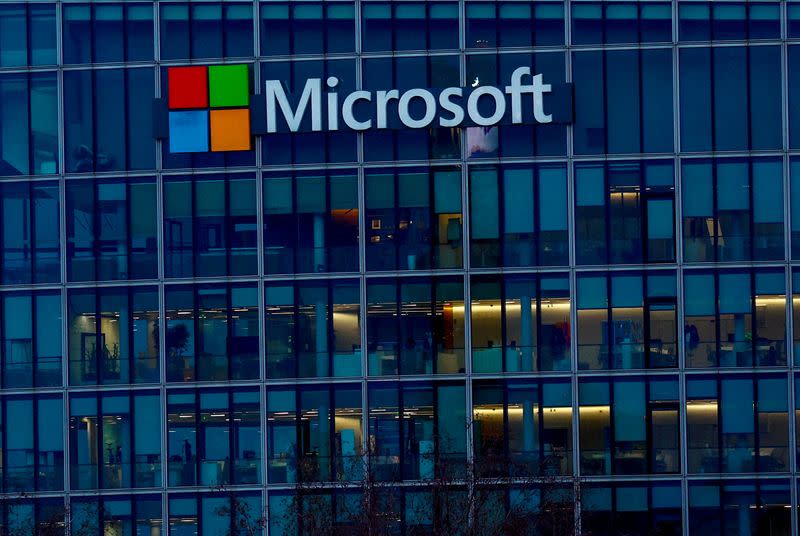Microsoft pays Inflection $650 million in licensing deal while poaching top talents, source says

By Krystal Hu and Harshita Mary Varghese
(Reuters) -Microsoft has agreed to pay AI startup Inflection about $650 million in cash in an unusual deal that would allow Microsoft to use Inflection's models and hire most of the startup's staff including its co-founders, a person familiar with the matter told Reuters on Thursday.
The high-profile AI startup's models will be available on Microsoft's Azure cloud service, the source said. Inflection is using the licensing fee to pay Greylock, Dragoneer and some other investors, the source added, saying the investors will get a return of 1.5 times what they invested.
Microsoft hired Inflection co-founders Mustafa Suleyman and Karen Simonyan on Tuesday, along with most of the 70-person team at the AI firm, for a newly created consumer AI unit called Microsoft AI. The leading software company has been looking to consolidate and expand its AI offerings for consumer products.
Suleyman will be CEO of the unit, while Simonyan will join as chief scientist. Other employees, including Inflection's vice president of engineering, have also joined Microsoft, according to LinkedIn profiles.
Microsoft declined to comment, while Inflection AI did not immediately respond to a Reuters request for comment.
The details about the deal was originally reported on Thursday by the Information.
Inflection AI has emerged as one of the most high-flying names in generative AI after raising $1.3 billion from Microsoft and Nvidia in a mix of cash and cloud credit at a valuation of $4 billion in June. It has built its own foundation models and runs a chatbot called Pi, which it said has more than 1 million daily active users earlier this month.
Now with a new CEO, Inflection said on Tuesday it will shift its focus on selling models to enterprise customers.
Experts said the deal could draw more regulatory scrutiny on Microsoft, which already faces inquiries from the U.S. Federal Trade Commission on its AI investment.
"This deal could be seen as an effort to reduce competition in the foundation model markets, as Infection is going to be a shell of its former self," said Steven Weber, professor at the UC Berkeley School of Information, who has received research funding from technology firms including Google and Microsoft.
(Reporting by Krystal Hu in New York and Harshita Mary Varghese in Bengaluru; Editing by Maju Samuel and David Gregorio)


